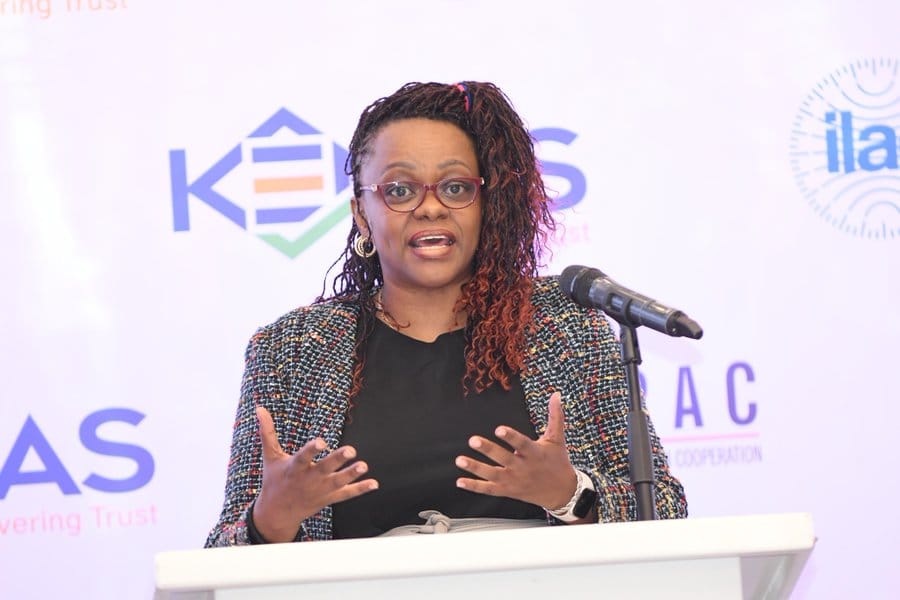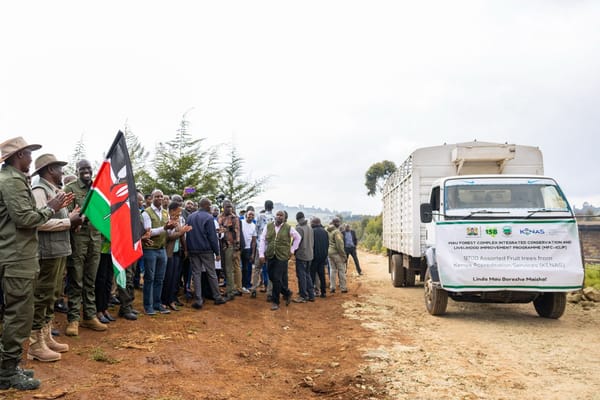Accreditation Meets Fintech: How Quality Assurance is Shaping the Future of SME Lending

“Accreditation + API access = smarter lending.”
These were the compelling words of Ms. Angela Mwirigi, Head of Digital Banking at Kenya Commercial Bank (KCB), as she addressed participants during the Pre-Conference session of the International Accreditation Conference hosted by the Kenya Accreditation Service (KENAS).
Speaking on the theme “Fintech-Driven Credit Scoring for SME Loan Accessibility,” Ms. Mwirigi emphasized that the convergence of accreditation and digital banking technologies holds transformative potential for Kenya’s financial services sector—particularly in improving credit access for Micro, Small, and Medium Enterprises (MSMEs).
A New Era of Smarter, Faster, Fairer Lending
With digital banking platforms evolving rapidly, financial institutions like KCB are increasingly relying on data-driven credit scoring models to determine the risk profile of borrowers. In this context, real-time access to verified data—such as a business’s accreditation status—could serve as a key input in evaluating trustworthiness, compliance, and operational capacity.
“If we could verify a business’s accreditation level via its registration number, we’d lend better, faster, and more fairly,” Ms. Mwirigi noted.
Such integration would not only streamline loan approvals but also reduce bias, enhance transparency, and reward businesses that invest in quality and compliance.
Accreditation as a Proxy for Business Integrity
Accreditation is a formal recognition that an organization meets international standards of competence, integrity, and quality assurance. For the banking sector, this serves as a risk-reduction signal—especially valuable in lending to MSMEs, which often lack conventional credit histories or collateral.
Ms. Mwirigi argued that incorporating accreditation data into digital lending ecosystems could:
- Help distinguish credible businesses in high-risk environments,
- Enable faster decision-making with lower manual verification,
- Encourage SMEs to pursue accreditation as part of growth and financing strategy.
Unlocking Inclusive Financing for SMEs
In Kenya, SMEs represent over 90% of businesses, yet many face barriers accessing affordable credit. Ms. Mwirigi believes fintech and accreditation can work hand-in-hand to break down these barriers.
By connecting KENAS's accreditation database to fintech platforms via secure APIs, banks could automate part of the loan underwriting process. This would not only democratize access to finance but also incentivize SMEs to adopt quality assurance frameworks—further boosting their market competitiveness.
A Strategic Partnership for Financial Innovation
Ms. Mwirigi’s remarks highlight a broader opportunity: the need for strategic collaboration between financial institutions, regulators, and accreditation bodies. As Kenya accelerates its digital transformation, these partnerships will be key to:
- Promoting responsible and inclusive finance,
- Enhancing trust in digital financial services,
- Supporting the goals of the Bottom-Up Economic Transformation Agenda (BETA).
KENAS, with its internationally recognized accreditation schemes, plays a pivotal role in strengthening national quality infrastructure—making it a vital enabler of digitally inclusive financial ecosystems.
Looking Ahead
As stakeholders prepare for the International Accreditation Conference in November 2025, the insights from the Pre-Conference serve as a call to action:
To build systems where quality, trust, and innovation converge to drive inclusive economic growth.



